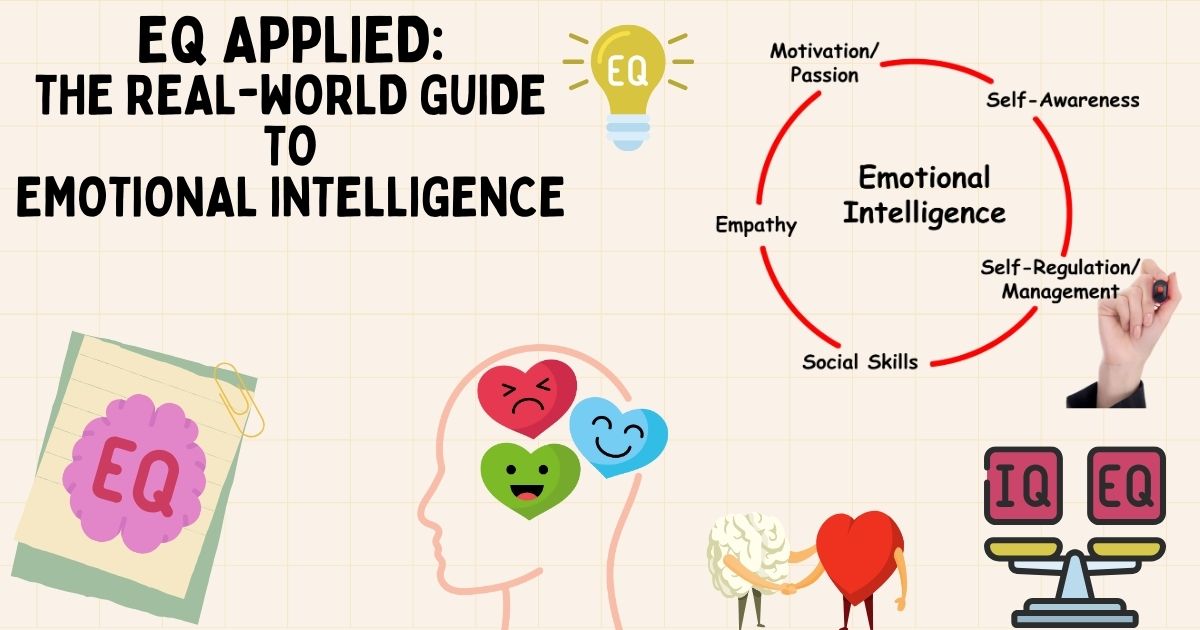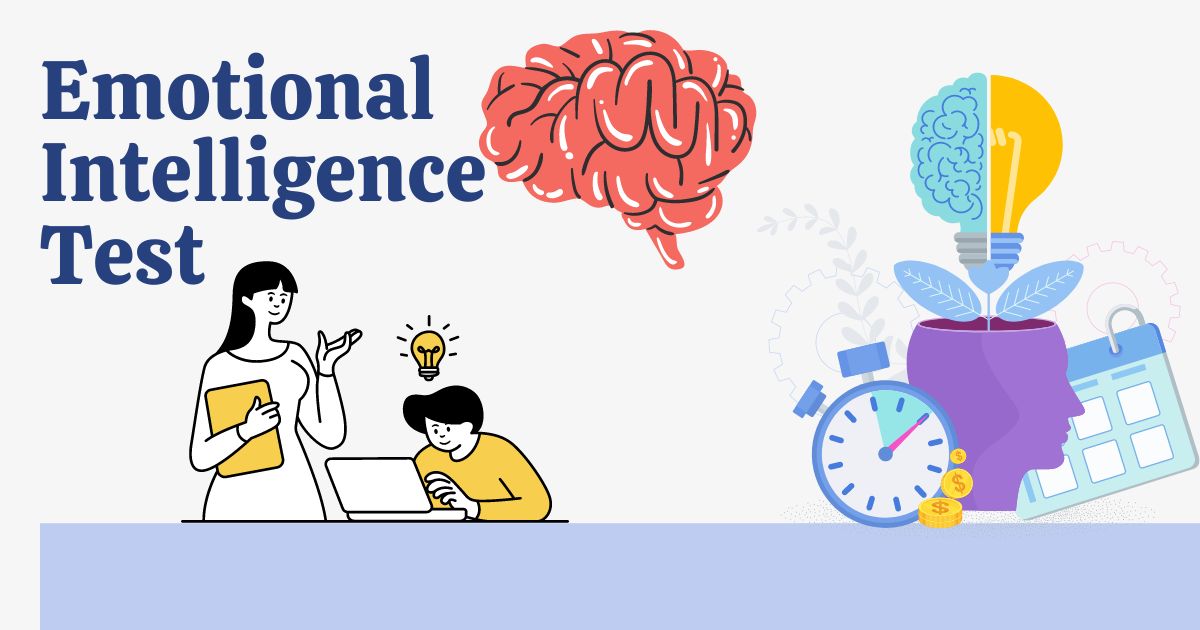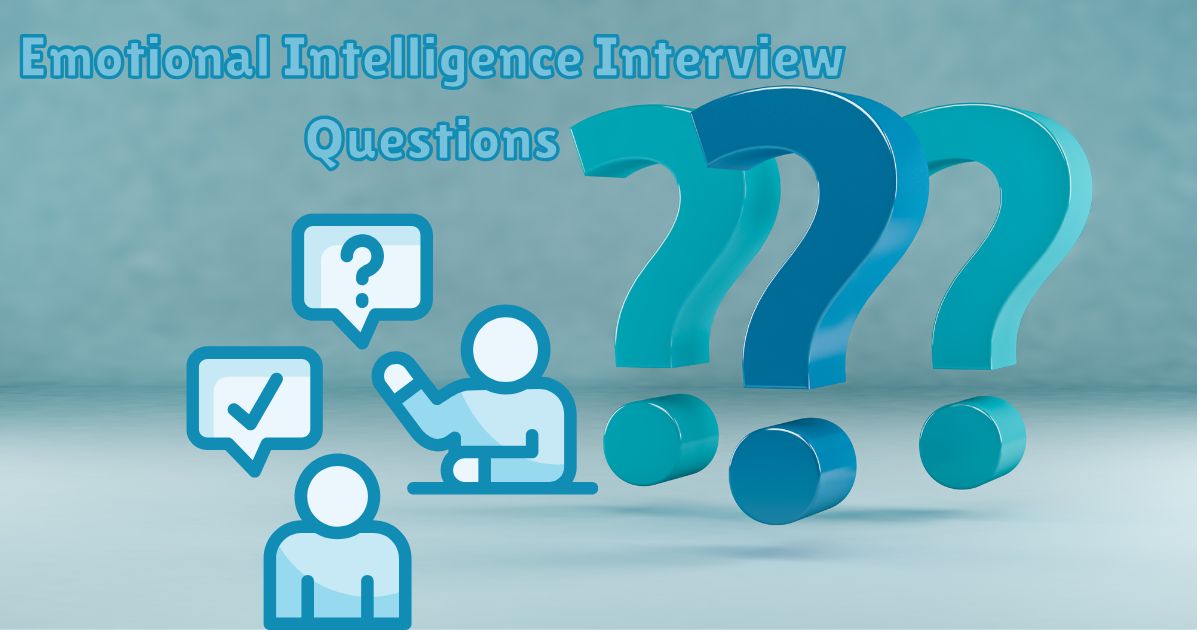Introduction
EQ Applied: The Real-World Guide to Emotional Intelligence
Enthusiastic Insights, habitually truncated as EQ, is more and more recognized as a pivotal ability in exploring the complexities of the current world. In this article, we will investigate what EQ is, why it metter, and how you might take after it in real-life conditions.
What is Emotional Intelligence (EQ)?
Passionate Insights alludes back to the capability to secure, secure, and control each our claim sentiments and individuals of others. It includes abilties such as sympathy, self-awareness, self-regulation, social cognizance, and dating administration. Not at all like IQ, which measures cognitive competencies, Emotional Intelligence (EQ) specializes in the passionate components of insights.
Why Does EQ Matter?
EQ plays a critical function in numerous elements of life, along with non-public relationships, expert fulfillment, intellectual fitness, and ordinary happiness. Research has proven that people with higher tiers of emotional intelligence generally tend to have higher social talents, stronger interpersonal relationships, and better tiers of resilience within the face of challenges.
In the working environment, EQ is profoundly esteemed as it contributes to viable administration, cooperation, struggle determination, and decision-making. Pioneers with tall EQ are way better able to motivate and propel their groups, handle stretch, and explore troublesome circumstances with beauty and composure.
Applying EQ in Real Life
Now that we recognize what Emotional intelligence (EQ) is and why it is vital, allows delving into practical approaches to use it in diverse conditions:
1. Self-Awareness
Self-recognition is the foundation of emotional intelligence. It involves being in song together with your own feelings, strengths, weaknesses, values, and dreams. To enhance self-recognition, take time for self-mirrored image, journaling, and seeking remarks from others. Pay attention to the way you sense in one of a kind situations and how your feelings have an impact on your thoughts and moves.
2. Self-Regulation
Self-regulation is the capability to control and control your feelings, impulses, and reactions. Practice techniques inclusive of deep respiratory, mindfulness, and pressure management to stay calm and composed in difficult conditions. Learn to pause and suppose earlier than responding, in preference to reacting impulsively.
3. Empathy
Empathy involves information and sharing the emotions of others. Practice active listening, put your self in others’ footwear, and validate their feelings. Show compassion and support, even while you disagree with someone. Cultivating empathy strengthens relationships and fosters an experience of connection and information.
4. Social Awareness
Social mindfulness is the capacity to get it the feelings and needs of others in social settings. Pay consideration to nonverbal signals such as body dialect and facial expressions. Hone compassion and perspective-taking to way better get it the points of view and encounters of others. Construct affinity and believe through veritable intrigued and dynamic engagement in discussions.
5. Relationship Management
Relationship control incorporates accurately overseeing interpersonal connections and exploring social flow. Communicate brazenly and really, express appreciation and appreciation, and unravel clashes valuably. Cultivate a positive and steady environment in which individuals feel esteemed and regarded.
By making use of these standards of emotional intelligence to your each day life, you may enhance your relationships, enhance your communiqué abilities, and attain greater fulfillment and achievement.
FAQs About Emotional Intelligence (EQ)
Q: Can emotional intelligence be found out?
A: Yes, emotional intelligence may be discovered and evolved through self-cognizance, exercise, and feedback from others. It’s an ability that may be cultivated over the years with dedication and effort.
Q: How can I improve my emotional intelligence?
A: To improve your emotional intelligence, attention on enhancing self-consciousness, self-law, empathy, social focus, and relationship management. Practice mindfulness, are seeking for feedback from others, and have interaction in sports that promote emotional well-being.
Q: Is emotional intelligence more vital than IQ?
A: While both emotional intelligence (EQ) and intellectual intelligence (IQ) are critical, EQ is regularly considered greater important for achievement in areas which includes management, conversation, and interpersonal relationships. EQ enhances IQ and complements typical effectiveness in various factors of existence.
Conclusion
In conclusion, EQ Applied: The Real-World Guide to Emotional Intelligence gives profitable experiences and viable techniques for creating and applying passionate insights in ordinary life. By developing self-awareness, self-regulation, sympathy, social mindfulness, and relationship administration abilities, you can upgrade your individual and proficient connections, explore challenges with strength, and lead a more satisfying and effective life.




